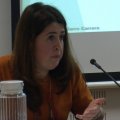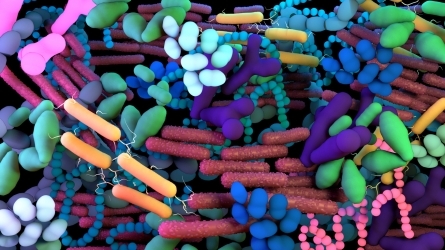
Indarkeria futbolean: arrazoiak, diagnostikoa eta aurre egiteko aukerak
Description
Uda Ikastaroaren helburua, oro har, futbolean agertzen den indarkeriaren arrazoiak aztertzea da, eta bereziki Gipuzkoako Futbol Federazioak eraldatu nahi duen amateur modalitatean. Indarkeriaren jatorria diagnostikatu ondoren, arazoari aurre egiteko hainbat ikuspegi aztertuko ditugu. Azkenik, kirol-jardueratik indarkeria ezabatzeko etorkizuneko ildo estrategikoen inguruan hausnarketa irekiaz.
Objectives
Futbola tresna erabilgarri gisa lantzea gizarteko arazoak bideratzen saiatzeko.
Activity directed to
- All public
- Professionals
Program
13-09-2023
Registro
Institutional Opening session. Speaking order:
- Enara Garro Carrera | UPV/EHU - Titular de Derecho penal
- Marta Pastor Bañales | Gipuzkoako Foru Aldundia/ Diputación Foral de Gipuzkoa - Directora Foral de Deportes
- Oneida Zubia Ramos | Federación Guipuzcoana de Fútbol - Vicepresidenta
MESA 1. VIOLENCIA EN EL FÚTBOL. CASUÍSTICA Y DIAGNÓSTICO
“Ponencia Inaugural“
- Juan José Álvarez Rubio | UPV/EHU - Catedrático de Derecho Internacional Privado
“Violencia en el fútbol. Casuística con especial consideración de los delitos de odio “
- Jon Mirena Landa Gorostiza | Catedrático de Derecho penal de UPV/EHU. Director de la Cátedra UNESCO de DDHH y Poderes Públicos
“Diagnóstico y dimensión del problema: desde el fútbol base hasta la primera división“
- Manu Diaz de Marcos | Gipuzkoako Futbol Federazioa - Presidente
“ Debate, Moderador“
- Eli Aizpurua Aranburu | Diario Vasco - Periodista
Pausa-café
“MESA 2. ESTRATEGIAS DE AFRONTAMIENTO Y RETOS PENDIENTES“
Presenta
- Eneko Etxeberria Bereciartua | UPV/EHU - Prof. Agregado de Derecho procesal de la UPV/EHU Cátedra UNESCO de Derechos Humanos y Poderes Públicos
“Estrategias de afrontamiento de la violencia: virtualidades y límites de la estrategia policial“
- Rosa Celada Calvo | Ertzaina jubilada Secretaría General Sección de Derechos Ciudadanos y Seguridad Pública
“Otras perspectivas de afrontamiento: perspectiva institucional “
- Goizane Alvarez Irijoa | Gipuzkoako Foru Aldundia/ Diputación Foral de Gipuzkoa - Diputada Foral de Cultura , Cooperación, Juventud y Deportes en la Diputación Foral de Gipuzkoa
“Komunikabideen papera, babesle edo arrisku sortzaile - El papel de los medios de comunicación: ¿factor protector o de riesgo?““
- Mikel Recalde | Periodista
- jone Bastida Alzuru | Periodista
- Álvaro Vicente | Periodista
- Ane Urkiri | GARA - Periodista
Modera
- Koldo Aldalur | EITB - Periodista deportivo ETB
Intervenciones, debate, preguntas
Round table: “Factores principales de la violencia en el fútbol amateur y retos pendientes“
- Juanjo Lusa Sobron (Moderator)
- Ainhoa Ibarburu Achega | Federación Guipuzcoana de Baloncesto - Presidenta
- Ricardo de Burgos Bengoetxea | Árbitro
- Jon Ander Ulazia Garetxana | SD Eibar - Consejero
- Manu Diaz de Marcos | Federación Gipuzkoana de Fútbol - Presidente
- Tati Garmendia | Balonmano Bera Bera - jugadora profesional
- Aitor Gorostegui | Árbitro VAR 2a División
Closing session
- Eneko Etxeberria Bereciartua | UPV/EHU - Prof. Agregado de Derecho procesal de la UPV/EHU Cátedra UNESCO de Derechos Humanos y Poderes Públicos
Directors

Eneko Etxeberria Bereciartua
UPV/EHU
University professor EHU / UPV School of Law. Associate professor of law legal process. PhD in Law.
Enara Garro es Profesora Titular (acred.) de Derecho penal en la Facultad de Derecho de la Universidad del País Vasco y miembro de la Cátedra de Derechos Humanos y Poderes Públicos de la UPV/EHU. Su principal línea de investigación reside en el análisis del comportamiento postdelictivo positivo desde una perspectiva de Derecho comparado, abordando el impacto de la reparación y de la confesión en el ámbito de la determinación de la pena. Ha estudiado las cláusulas de atenuación cualificada y renuncia a la pena por colaboración con las autoridades en materia de terrorismo y criminalidad organizada y actualmente trabaja sobre la prescripción, así como sobre la ejecución de la pena en delitos de terrorismo.
Speakers

Eli Aizpurua Aranburu

Koldo Aldalur

Goizane Alvarez Irijoa
Diputación Foral de Gipuzkoa
Directora General de Deportes de la Diputación Foral de Gipuzkoa. Licenciada en Derecho. Master de Abogacía de la Empresa.

Juan José Álvarez Rubio
UPV/EHU, Catedrático Derecho internacional privado
Juan José Álvarez Rubio (Zumaia, 1964) is Professor of Private International Law at the University of the Basque Country (UPV/EHU), where he obtained his Bachelor's degree with Extraordinary Prize and his PhD, also distinguished with the Extraordinary Prize (1995). He is Secretary of GLOBERNANCE and was Secretary-General of the Basque Council of the European Movement (EUROBASK/CVME) between 2003 and 2012. He is currently Chairman of the FEDIP (Spanish Forum on Private International Law). He was appointed expert by the European Commission in 2007 in the areas of civil justice, borders, data protection and security. He is principal investigator of the eAtlantic Foundation and Vice-President of JAKIUNDE. He has published ten monographs and over a hundred articles and scientific collaborations. He also serves as a lawyer and consultant in compliance and international recruitment, and is a member of the board of the IKERBASQUE and UNED Bergara foundations. Since April 2022, he has been an independent advisor to the KUTXA Governing Council for Labor.

jone Bastida Alzuru

Rosa Celada Calvo
-

Ricardo de Burgos Bengoetxea

Manu Diaz de Marcos

Eneko Etxeberria Bereciartua
UPV/EHU
University professor EHU / UPV School of Law. Associate professor of law legal process. PhD in Law.

Tati Garmendia

Aitor Gorostegui

Ainhoa Ibarburu Achega

Jon Mirena Landa Gorostiza
Catedrático de Derecho Penal en la Facultad de Derecho –Bizkaia- de la Universidad del Pais Vasco (UVP-EHU) y Director de la Cátedra UNESCO de Derechos Humanos y Poderes Públicos UPV/EHU. Investigador de las líneas del racismo, la xenofobia, la discriminación, los delitos de odio, terrorismo, crímenes contra la humanidad y penología. Ha sido profesor o investigador visitante en diversas universidades de Europa. De noviembre de 2005 a mayo de 2009 fue Director de Derechos Humanos del Gobierno Vasco (Departamento de Justicia). En la actualidad dirige un Grupo de investigación financiado por el gobierno español en materia de delitos de odio.

Juanjo Lusa Sobron

Mikel Recalde

Jon Ander Ulazia Garetxana

Ane Urkiri

Álvaro Vicente
Registration fees
| Face-to-face | Until 31-05-2023 | Until 13-09-2023 |
|---|---|---|
| 25,00 EUR | 33,00 EUR | |
| - | 47,00 EUR | |
| - | 40,00 EUR | |
| - | 33,00 EUR | |
| - | 40,00 EUR | |
| - | 40,00 EUR | |
| - | 40,00 EUR | |
| - | 40,00 EUR |
Venue
Miramar Palace
Pº de Miraconcha nº 48. Donostia / San Sebastián
Gipuzkoa
Miramar Palace
Pº de Miraconcha nº 48. Donostia / San Sebastián
Gipuzkoa
Sustainable development goals
Agenda 2030 is the new international development agenda approved in September 2015 by the United Nations. This agenda aims to be an instrument to favour sustainable human development all over the planet, and its main pillars are the eradication of poverty, a reduction in equality and vulnerability and fostering sustainability. It is a unique opportunity to transform the world up to 2030 and guarantee human rights for all.

16 - Peace, justice and strong institutions
Texto ods pendiente. Lorem ipsum dolor sit amet.
Añadir link




